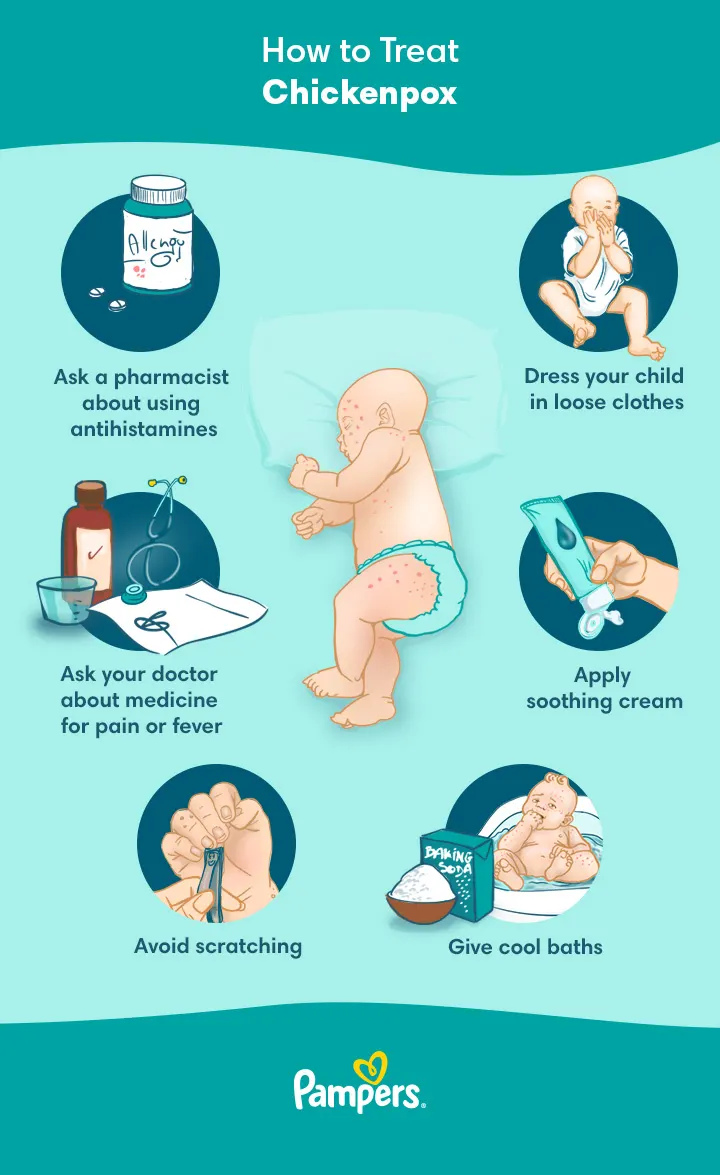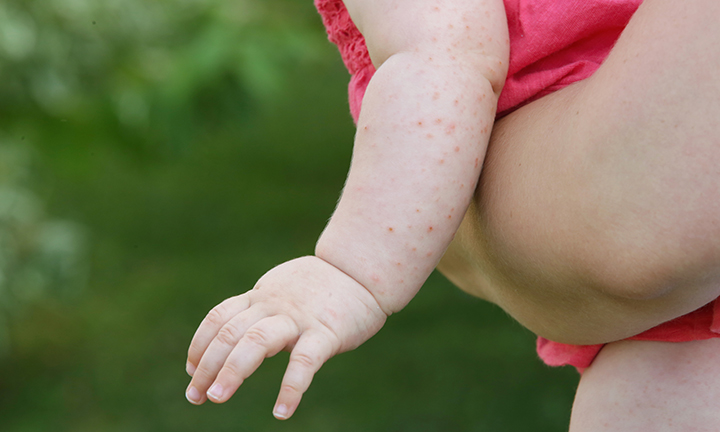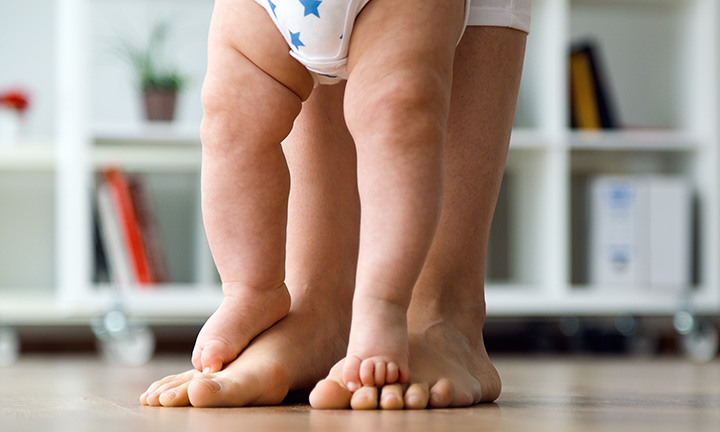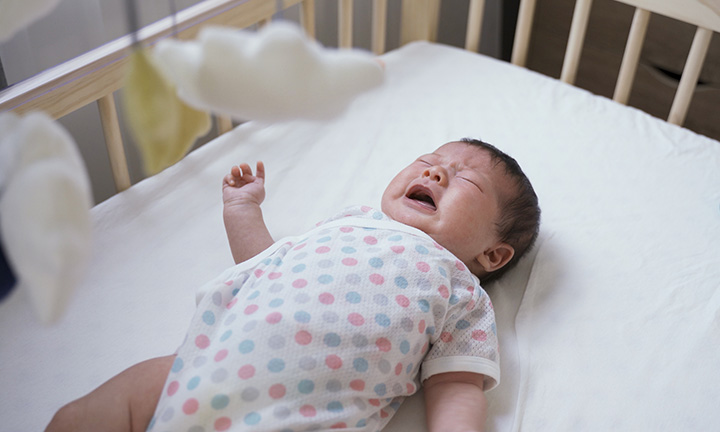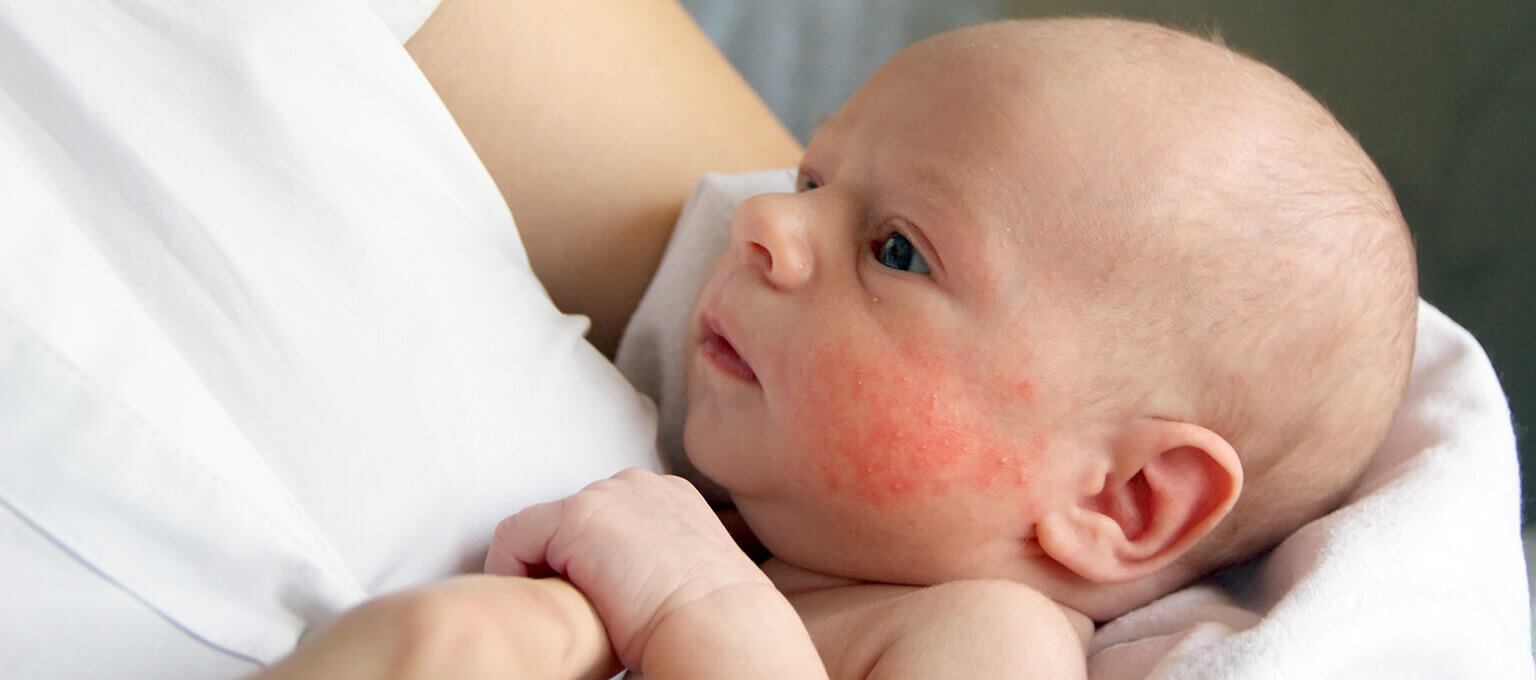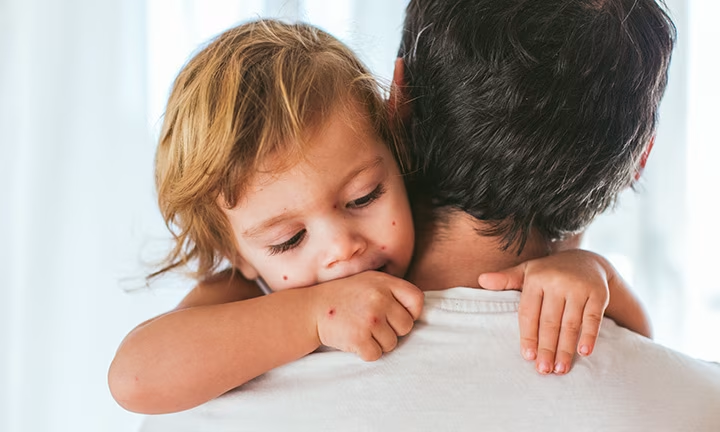
Chickenpox in Babies, Toddlers and During Pregnancy
Varicella, more commonly known as chickenpox, might be one of the least enjoyable parts of childhood. Luckily though, the symptoms of chickenpox don’t usually last more than a week or so, and more serious complications are rare.
Keep reading for pointers on how to alleviate the symptoms if your little one breaks out in a tell-tale rash of itchy spots, when it might be necessary to seek treatment or a vaccine, and what it could mean for you and your baby if you happen to catch chickenpox when you’re pregnant.
What Is Chickenpox?
Chickenpox, also known as varicella, is a highly contagious infection caused by the varicella-zoster virus. Its best-known symptom is a rash that appears as an outbreak of itchy red spots. Childhood chickenpox doesn't usually cause serious illness in healthy children, but in adults, adolescents, pregnant women or newborn babies it can be more severe and may occasionally lead to complications like pneumonia. The good news is that the chances of catching the disease in early or late adulthood are low because most people have already had it as a child. This usually gives them immunity for life. For at-risk people who aren’t yet immune to chickenpox there are ways to reduce the risk of infection, including a vaccine.
Chickenpox Symptoms
Chickenpox in kids, babies or adults may start with a temperature or mild fever and a general feeling of being unwell before the rash appears.
Within a few hours or days of this, other typical symptoms of chickenpox appear, including:
When Is Chickenpox Contagious?
Chickenpox is highly contagious, and it can be caught by touching the rash of someone who already has the infection or by handling infected objects like clothing or bedding. It can also be transmitted through the air in tiny droplets by coughing or sneezing.
The most infectious period for chickenpox starts one or two days before the rash appears and lasts until all the blisters have crusted over. This is usually about five to six days after the symptoms first start appearing.
If your little one gets chickenpox, keep your child at home until all the spots have crusted over, to avoid spreading the infection to others. It’s also a good idea to alert other parents whose children might have come into contact with your child during the infectious period. In particular, avoid contact with newborn babies and people who may not yet be immune to chickenpox – especially if they’re pregnant or have a compromised immune system. Because it’s such an infectious disease, children with a sibling who has chickenpox are also highly likely to get the infection as well, if they don’t already have immunity.
Chickenpox Treatment
Chickenpox in otherwise healthy children usually clears up by itself in around a week without treatment, but even mild cases can be uncomfortable for your little one. So, if you’re wondering how to treat chickenpox in babies or children, here are some ways you can ease the discomfort:
Preventing Chickenpox in Toddlers, Kids and Adults
Chickenpox is highly contagious, so the best way not to catch it is to be immune to the virus that causes it. There are two ways of becoming immune to chickenpox:
People without immunity can try to avoid infection by steering clear of anyone who may be infected with chickenpox and/or shingles (another skin infection caused by the varicella-zoster virus).
Chickenpox in Infants
Chickenpox is usually a mild disease, but it can be serious in a newborn, especially if they were born prematurely or have a compromised immune system. If you, as the parent, have had chickenpox at some time in your life, you’re immune to the disease and you’ll pass on some chickenpox antibodies to your baby. This will them temporarily immune to the virus for the first few weeks or months after being born. The immunity wears off after that, but chickenpox antibodies are also passed on in breast milk, so if you breastfeed your baby, it may last a little longer. Colostrum – the first breast milk you produce immediately after giving birth – is especially rich in antibodies. If you think your newborn baby could have chickenpox, call your doctor straight away.
Chickenpox During Pregnancy
It’s rare to get chickenpox when you’re pregnant, but if you haven't had the virus yet and haven’t been vaccinated, there is a small chance of this happening. Even if you do catch the virus, the risk of complications for you and your little one is still low. Still, it’s important to tell your doctor straight away if you notice any symptoms or if you’ve been in contact with someone who may have chickenpox.
Possible Complications for You
If you do get chickenpox during pregnancy, complications for you as a pregnant person are very rare. Although they can be serious if they do occur, modern antiviral therapies and intensive care are usually effective at dealing with them.
Possible complications of chickenpox in pregnancy include:
Possible Complications for Your Baby
If you haven't had chickenpox yet and you’re pregnant or planning to get pregnant, ask your doctor for advice about the chickenpox vaccine and whether immunisation is advisable in your case.
Chickenpox Vaccine
The chickenpox vaccine is not routinely offered free of charge to infants and children on the NHS in the UK, although it is available privately to those who would like it. However, suppose you or your child are not yet immune and regularly come into contact with someone who has a weakened immune system or a high risk of complications from chickenpox. In that case, it may be advisable to have the vaccine. If this is the case, you will probably be eligible for immunisation on the NHS. Eligibility also applies to people in certain professions, like healthcare workers. Speak to your doctor, midwife or health visitor if you think you might be a candidate to receive the chickenpox vaccine. The chickenpox vaccine is not recommended for babies under 9 months, pregnant people or those with a weakened immune system. This is because the vaccine contains a weakened version of the virus.
When to Call Your Doctor
Chickenpox doesn’t always need medical treatment, but if you do visit a doctor’s surgery it’s best to phone ahead. They may want to see you separately from other patients, to prevent the infection from spreading.
Check in with your doctor or paediatrician to discuss treatment if
FAQS AT A GLANCE
Yes, you can go to work if your child has chickenpox, provided you are not ill yourself. However, it is important to ensure that you are not spreading the virus to vulnerable individuals who have not had chickenpox or have weakened immune systems.
The Bottom Line
Like so many other childhood illnesses, chickenpox is never welcome, and the symptoms – especially the itchy rash – can be tough for your little one. Although it’s good to know how to help make your child comfortable, it’s always best to ask your child’s doctor for personalised treatment advice.
Most children who get infected are back to being their old selves within a week or so without any major complications. The added bonus is that once your child’s had it, they’ll almost certainly never get chickenpox again!
To start earning rewards on every Pampers product you purchase, download the Pampers Rewards app.
Read more about Baby
Join Pampers Club and get:

